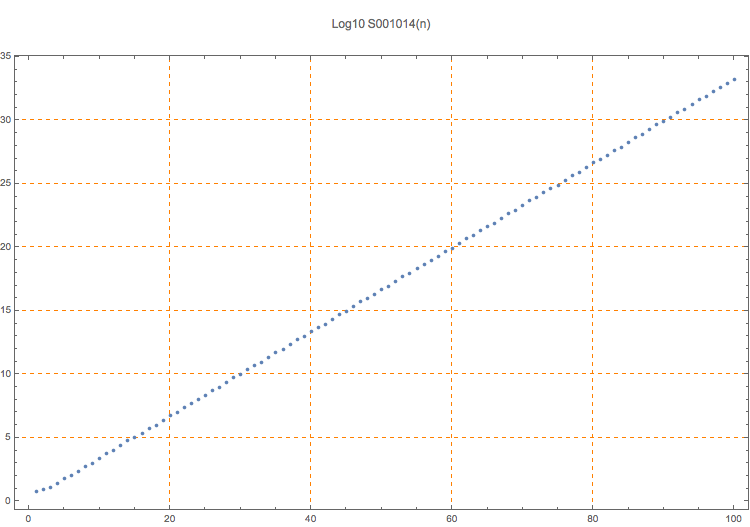Numbers x such that there is a primitive* triangle whose sides are x, x-2, and 10.
6, 8, 12, 26, 60, 104, 246, 584, 1020, 2426, 5772, 10088, 24006, 57128, 99852, 237626, 565500, 988424, 2352246, 5597864, 9784380, 23284826, 55413132, 96855368, 230496006, 548533448, 958769292, 2281675226, 5429921340, 9490837544, 22586256246, 53750679944
1
We put an askterisk on primitive because none of these are primitive; they are all twice a triangle of the form x, x-1, 5, which are given in S001009. The sequence of primitive triangles are given in S000996. Note that the first triangle has zero area.
T. D. Noe, Plot of 100 terms
T. D. Noe, Table of 100 terms
Formula: s(n) = s(n-1) + 10*s(n-3) - 10*s(n-4) - s(n-6) + s(n-7), with initial terms 6, 8, 12, 26, 60, 104, 246.
(Mma) triArea[a_Integer, b_Integer, c_Integer] := Sqrt[(a + b + c) (-a + b + c) (a - b + c) (a + b - c)]/4; s10 = Select[Range[1000000], IntegerQ[triArea[#1, #1 - 2, 10]] &]; r10 = FindLinearRecurrence[s10]; t10 = LinearRecurrence[r10, Take[s10, Length[r10]], 30]
nonn
T. D. Noe, Apr 24 2017
